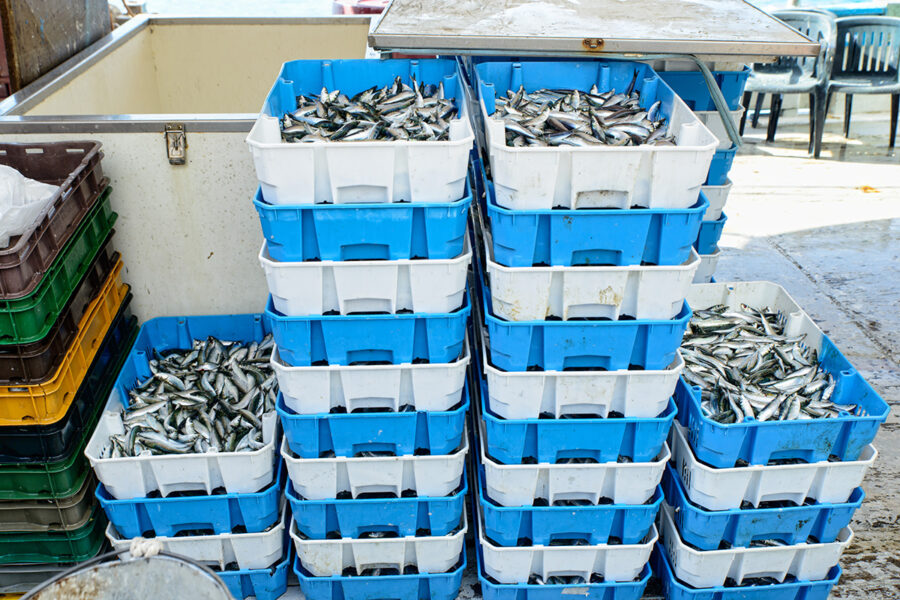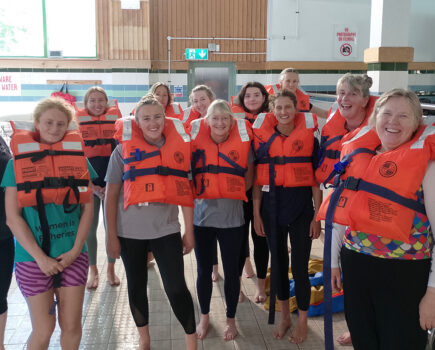Industry leaders have called for the fishing industry to be given a much higher priority as a vital element in national food security, and for political parties to include a strategy for fisheries in their manifestos ahead of the general election later this year.
Their call came after a Westminster debate on national food security which was totally dominated by farming and agriculture, and in which the fishing industry and seafood did not receive a single mention.
The two-hour debate, which considered ‘the matter of food security, including the effects on it of environmental change and of insect decline’ covered every conceivable aspect of agriculture – but the MPs taking part evidently did not consider fish and seafood to play any role in national food security.
MPs representing coastal constituencies were conspicuous by their absence, and the two who did attend did not mention fishing in their contributions to the debate.
One was Robert Goodwill, MP for Scarborough and Whitby and chair of the Environment, Food and Rural Affairs (Efra) Committee which regularly hears evidence on fishing-related matters. The other was Dover MP Natalie Elphicke.
Shadow fisheries minister Daniel Zeichner, the MP for Cambridge, made no reference to the fishing industry in his speech, and neither did Theresa Villiers, MP for Chipping Barnet and a former fisheries minister.
One possible opening for a link to problems in the fishing industry arose when Stoke on Trent MP Jo Gideon highlighted the need for seasonal labour, ‘including from overseas’ to prevent food being ‘left rotting in fields for the lack of people to help harvest it’. But no concerns were voiced over labour problems in the fishing industry.
The nearest the debate got to recognising that people other than farmers produce food was when Neil Hudson (Penrith and Borders) and a member of the Efra committee paid tribute ‘to all our farmers, growers and producers, and everyone else involved in producing food in our country’.
Elspeth Macdonald and Mike Cohen, chief executives of the SFF and NFFO respectively, deplored the failure to include fishing in the debate.
Both attended the ‘Farm to Plate’ food summit held at 10 Downing Street last year, and were struck by its heavy emphasis on farming.
“It was very much terrestrially focused. Mike Cohen and I were invited, but were hugely outnumbered by the farming focus,” said Elspeth Macdonald.
Mike Cohen said they were told ‘quite explicitly’ then that the government was going to be prioritising food production and food security and that ‘fishing was part of that conversation’.
“I wrote a post on the NFFO website at the time saying these were fine words but time would tell whether they carry any weight. Time now appears to be telling a different story.”
Elspeth Macdonald said the failure to include fishing in the debate was ‘really depressing but perhaps not a surprise’.
“Sometimes fishing is a bit of an afterthought,” she told Fishing News. “There is so much focus on energy security and the need for offshore wind, but we say you need food security as well as energy security and we shouldn’t be prioritising one over the other.
“It’s very disappointing and frustrating when you consider how much time and effort the SFF and I’m sure the NFFO as well put into talking to politicians and MPs and stressing the importance of fishing as providing food, and food production being very much part of our national security.”
She said people dismiss fish and seafood as part of national food security too quickly as so much of it is exported, but this missed the point. Farmed produce is also exported, and all countries import and export food to meet the demands of their markets.
“This attitude misses a trick. These are relatively peaceful, stable times, but you don’t have to look too hard to see the geo- political instability in the world.
“We are extremely fortunate to be able produce such healthy, sustainable, renewable food from our own waters, and we should be taking much more pride in it and supporting it as part of that national food security.”
‘Put national fishing strategy in election manifestos’
Mike Cohen said the role of fishing in national food security had been discussed with the NFFO, and it was disappointing to see that fishing now appeared to have been ‘missed out of that equation’.
“I would like to see fishing given much more prominence, given that it is a very low-carbon source of protein. It’s something we can produce in this country, it’s a plentiful resource and well managed, so really it should be an important part of the food security strategy.”
Like Elspeth Macdonald, he said energy security should not be prioritised over food security. “You can’t eat wind turbines,” he said. “An offshore wind farm has a lifespan of 25 years or so at most, but if we manage our food production capacity properly that will sustain us indefinitely.”
Offshore wind farms were using the sea to generate energy as a short-term, stop-gap measure until a long- term energy solution could be found, he said. “But producing our own seafood is the long- term solution, and we should be prioritising its security as well the economic benefits protecting a productive industry brings to coastal communities.”
He said that while there were national strategies for energy and conservation, there was no national strategy for fishing. “Perhaps in the run-up to the general election the parties might like to think about a strategy for producing food at sea, and giving it the same kind of status as the strategies they have for doing other things with the water.
“It wouldn’t take a great deal for government to provide some reassurance that they are actually taking the contribution of fishing to food security and to coastal economies seriously.”
Mike Cohen said too often politicians talked about fishing as though it was some sort of a conservation problem. “Fishing isn’t a problem – it’s a solution to the problem of how we sustainably produce low-carbon food locally and feed people affordable, tasty, nutritious food.
“We should be treating fishing as part of our food production capacity, as part of our economic activity on the coast.”
He said it was not controversial to see the land as a productive place, and it should be the same with the sea. But while people accepted that the land could not return to a pre-Industrial Revolution condition, many people appeared to want to ‘freeze the seas in time as a conservation endeavour that sometimes seems to be little more than creating a zoo for rocks to sit in’.
“Fishing is part of making our seas productive, a place to generate income and food as with the land – but people don’t understand the seas as well as they do the land.”
This story was taken from the latest issue of Fishing News. For more up-to-date and in-depth reports on the UK and Irish commercial fishing sector, subscribe to Fishing News here or buy the latest single issue for just £3.30 here.
Sign up to Fishing News’ FREE e-newsletter here.








